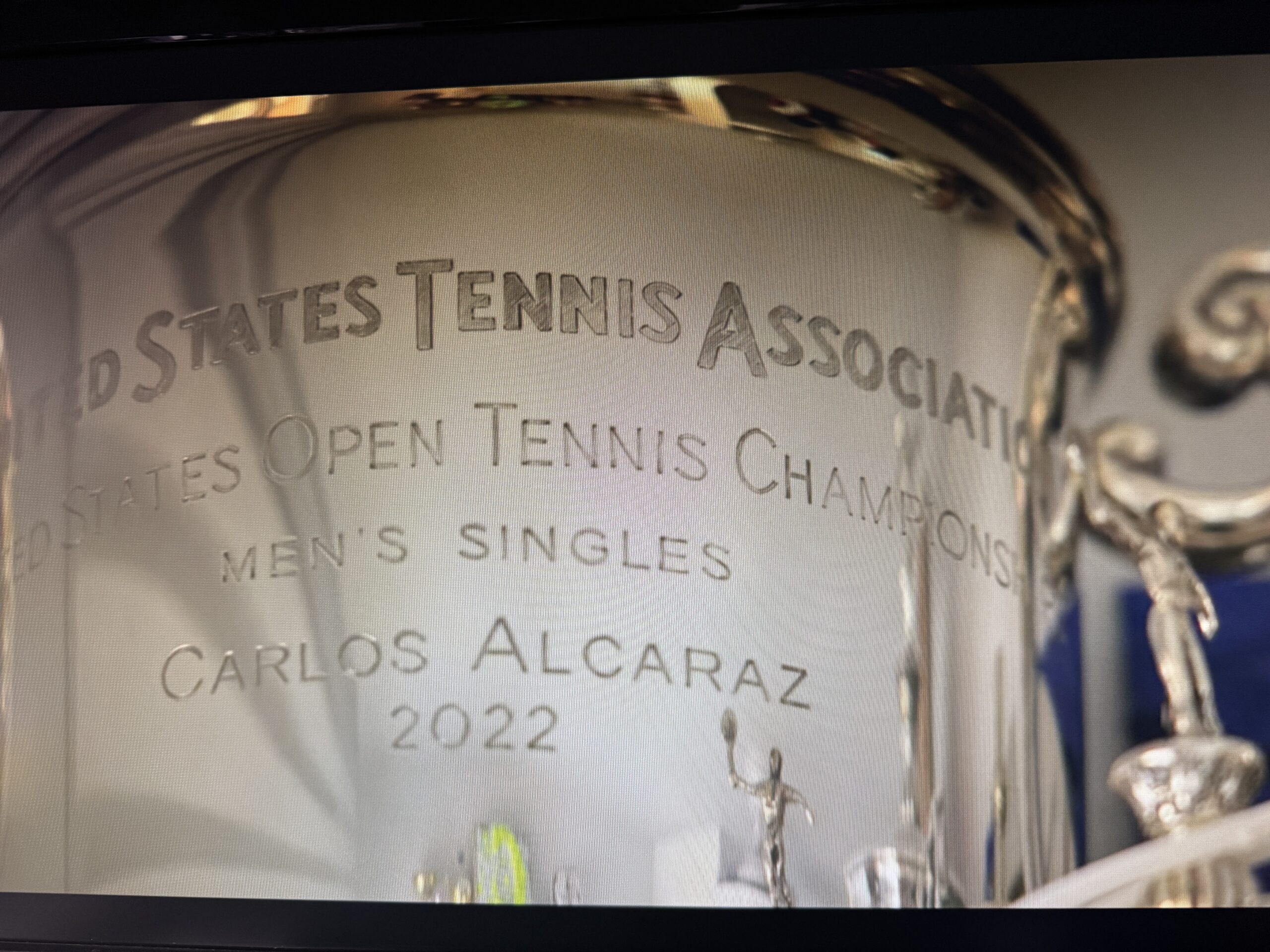Earlier this month, Apple TV+ released a new documentary on Boris Becker. It is structured into two episodes. “Triumph” runs one hour and 37 minutes, and “Disaster” comes in at a whopping 1 hour and 53 minutes. Let’s just say that the documentary is thorough.
The episode titles were derived from the inspirational quote from Rudyard Kipling’s poem “If…” that is inscribed above the entrance to Wimbledon’s Centre Court. “If you can meet with Triumph and Disaster, and treat those two impostors just the same…” The quote is a way of expressing that events are not inherently good or bad. Success and failure are emotional responses.
I have a personal connection with the quote as it is the one I selected as a part of the ritual when I was appointed to my ongoing Fellowship at my day job. This is kind of like the workplace equivalent to the dopey mottos that appear in high school yearbooks. In addition to the subtle connection to tennis that I think flies over everyone else’s heads in my work context, I believe that the quote is an apt metaphor for my career in general. Without exception, events that I initially thought were bad, turned out to be my luckiest breaks, and vice versa. Life is like that.
One reviewer on Rotten Tomatoes describes the documentary as “circuitous and initially somewhat ineffectual.” That phrase captures my sentiments exactly. Consequently, I recommend that tennis fans familiar with Becker’s playing career skip most of the first episode and start watching at the 1:25:30 mark.
Those last 12.5 minutes of “Triumph” capture a new and compelling narrative of why Becker was so exciting to watch. It was almost as if he created a crisis on the court for the thrill of overcoming it. His matches were compelling. It also foreshadows his personal trials and tribulations in the documentary’s second part.
One of the things that also struck me was how young Becker was when he won Wimbledon at 17. Age also comes into play as documentary filmmaker Alex Gibney interviewed Becker in the same setting on two occasions. First in 2019, when his personal and legal issues were just emerging, and again in 2022, shortly before his sentencing for illicitly hiding assets in a bankruptcy trial. Those three years took a heavy toll on Becker, which was visually apparent.
Ultimately, Becker’s story is a cautionary tale of an athlete that experienced great wealth before he was mature enough to handle it. Boom! Boom! The World vs. Boris Becker effectively explains his complicated personal life and financial dealings that led to his bankruptcy. Ultimately it is a portrait of a decent guy who quit school at 17 and arguably never really grew up.
I am not convinced we have seen his life story’s final chapter. However, I still feel compelled to root for the guy.




Will put the Becker documentary on my ‘to watch’ list…. is there no mention of ‘the’ cupboard incident?
Interesting how Kipling’s quote can mean different things to different people.
To me, it encourages a winner to be humble in victory and a loser not to behave like an ass (sorry – spoilt child!). Brits, and I am one, love a good loser and being a winner can be embarrassing. It is usual after playing matches in the UK to have a cup of tea with your opponent – certainly in the senior events. No-one wants to hear excuses or bragging – just appreciation for a good game. That is the British way.
Having said that, whenever I play a final, I have a mindset of determination… I may never get the opportunity to be in this situation again… take advantage of the moment and summon up your courage. Somewhat similar to the Billie Jean King ‘Pressure is a privilege quote’.
There is mention of the cupboard incident, including how his story has evolved over time. Barbara Felton was on screen a lot and made a much more positive impression on me than I would have anticipated. She came off as thoughtful and smart. She was an articulate narrator of her time with Becker.
Even with the extensive interviews of Boris, I found this documentary failed to provide much insight into the decision making that led to his legal woes. Then again, maybe he wasn’t thinking and that was the trap he set for himself. That said, getting to watch highlights of Boom Boom serving aces and diving on the grass at Wimbledon was a welcome dose of nostalgia. As a bonus, we get clips from his US Open match vs Brad Gilbert that Gilbert covers in detail in his classic book Winning Ugly.
We learn through old interview clips that young Boris disliked the Boom Boom nickname. However, adult Boris was never asked if his opinion of the nickname had changed over time, which I found a glaring omission given the title of the documentary.
As a person, Boris seems like a great guy and someone you’d really enjoy having a beer with and talking about tennis for a couple of hours.
The director is an academy award winning documentarian who usually covers hard hitting subject matter. I was surprised to see him associated with this project. His next documentary is reportedly about Elon Musk which I hope delves into much greater detail on how the subject thinks than Boom Boom was able to.